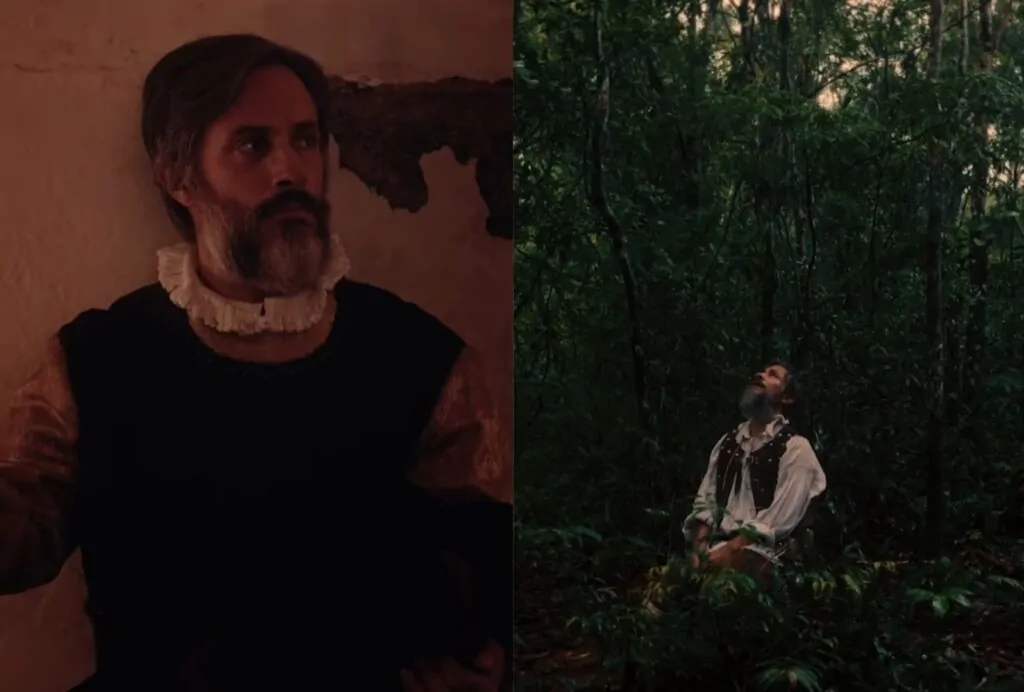
Exploring History: Lav Diaz's 'Magellan' Starring Gael Garcia Bernal Unveils
- Mexican actor Gael Garcia Bernal stars in Lav Diaz’s film "Magellan" at Cannes film festival
- Film re-examines European discovery of Philippines and questions existence of national resistance hero
- Bernal plays Portuguese explorer Ferdinand Magellan who landed in Philippines in early 1500s
- Diaz suggests Lapulapu, considered a national hero, was an invention of Humabon
- Film is part of "slow cinema" movement, Diaz aims to help Filipinos find national identity after colonization
- Film is relatively short at two hours and 40 minutes, compared to Diaz’s previous works of up to 11 hours
- Diaz’s filmmaking influenced by his tumultuous childhood in conflict-plagued southern Philippines town.
Mexican actor Gael Garcia Bernal takes on a challenging role in a new film that delves into the discovery of the Philippines by European explorers and raises questions about the existence of a national resistance hero. “Magellan,” directed by Filipino filmmaker Lav Diaz, had its premiere at the Cannes Film Festival, where it sparked discussions and debates about historical events and the perception of heroes.
In the film, Bernal portrays the Portuguese explorer Ferdinand Magellan, who embarked on a journey in the early 1500s to find riches in the Far East. Magellan’s arrival in the Philippines marked the beginning of the conversion of Filipinos to Christianity and eventually led to colonization. Diaz explores the complexities of this historical period by focusing on the encounter between Magellan and Lapulapu, a figure revered for his resistance against foreign invaders.
Diaz presents a controversial theory in “Magellan” that challenges the traditional narrative of Lapulapu as a national hero. According to the filmmaker, Lapulapu may have been a creation of Humabon, the monarch of a neighboring island, who orchestrated the Battle of Mactan as a trap for Magellan. Diaz’s interpretation of this historical event is based on years of research and a critical analysis of primary sources, including the writings of Antonio Pigafetta, an Italian who documented Magellan’s expedition.
The filmmaker’s exploration of Philippine history is not limited to questioning the legitimacy of heroes but also serves as a reflection on the impact of centuries of colonization by Spain and the United States. Diaz’s cinematic style, characterized by long takes and contemplative pacing, offers audiences a space for introspection and critical engagement with the past. Despite his reputation for creating lengthy films, “Magellan” is a relatively concise two hours and 40 minutes, making it more accessible to a wider audience.
Diaz’s personal background, shaped by his upbringing in the conflict-ridden town of Datu Paglas, informs his approach to storytelling and filmmaking. His parents, who were both educators, dedicated themselves to teaching children in war zones, instilling in Diaz a deep sense of social responsibility and a commitment to addressing historical injustices. Through his films, Diaz seeks to provide a platform for his fellow Filipinos to reclaim their national identity and challenge dominant narratives that have perpetuated colonial legacies.
As a prominent figure in the “slow cinema” movement, Diaz’s work has garnered international acclaim for its thought-provoking narratives and visual aesthetics. His previous films, including “The Woman Who Left,” which won the Golden Lion at the Venice Film Festival, and “A Lullaby to the Sorrowful Mystery,” showcased his distinctive storytelling style and thematic concerns. With “Magellan,” Diaz continues to push boundaries and provoke discussions about history, identity, and the power of storytelling.
In a cinematic landscape dominated by mainstream narratives and commercial interests, “Magellan” stands out as a bold and challenging exploration of Philippine history and cultural memory. By reimagining the encounter between Magellan and Lapulapu, Diaz invites audiences to reconsider their understanding of heroes, villains, and the complexities of historical events. Through Bernal’s compelling performance and Diaz’s visionary direction, “Magellan” offers a fresh perspective on a pivotal moment in the Philippines’ past and invites viewers to engage with the complexities of colonization, resistance, and national identity.
/Digital Sauce




